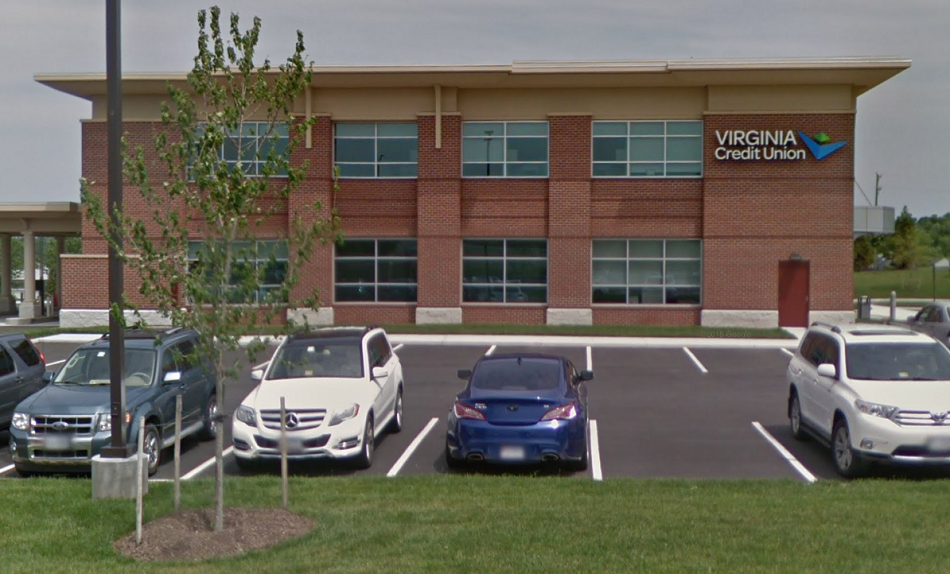
The Virginia State Corporation Commission on Wednesday ruled that the Virginia Credit Union cannot offer credit union membership to members of the Medical Society of Virginia. (BizSense file images)
A three-year legal slog that pitted banks from around the state against Richmond’s biggest credit union has come to an end, at least for now.
The Virginia State Corporation Commission on Wednesday ruled against Virginia Credit Union in its bid to expand by offering membership to the 10,000-member Medical Society of Virginia.
The ruling is a victory for the Virginia Bankers Association and seven banks that joined together to deny VACU the chance to win the business of MSV’s ranks of mainly physicians, a profession that’s often a coveted customer segment for banks.
Wednesday’s ruling from the SCC commissioners goes against a prior recommendation from an SCC examiner, who in July suggested that VACU be found victorious in the case.
The commission’s decision centered on one of the main arguments of the case: whether MSV has the ability to create a credit union of its own, which industry-specific groups have often done in the past.
“The Commission finds that VACU has not met its burden to show that ‘the formation of a separate credit union by (MSV) is not practicable, or is not consistent with reasonable safety-and-soundness standards.’ ”
The dispute began in 2019, when VACU applied to allow MSV into its field of membership. It was done at MSV’s request, documents state.
The application was initially approved by Bureau of Financial Institutions Commissioner Joe Face, before the bankers group mounted opposition.
The VBA-led group argued that VACU’s request goes too far beyond the statutory limit of membership expansion of 3,000 potential new members at a time. The MSV request is the largest such request ever by a credit union in Virginia, due to the size of the group and its statewide reach.
At more than $4 billion in total assets and 300,000 members, VACU is the sort of not-for-profit credit union that banks say has grown too large and “bank-like,” though without the same tax burdens as their for-profit counterparts.
The banks signed on as petitioners with the VBA are Farmers Bank in Windsor, American National Bank & Trust in Danville, First Bank & Trust in Abingdon, First National Bank in Altavista, Chesapeake Bank in Kilmarnock, The Bank of Charlotte County and Blue Ridge Bank. Chesapeake Bank, First Bank and Blue Ridge Bank each has a presence in the Richmond market.
The bankers group argued that Virginia law calls for groups of 3,000 or more to create their own credit union. VACU and its camp has said that should only be done when a credit union can be formed reasonably within the standards of safety and soundness expected of regulated credit unions.
MSV acknowledged during the case that it hadn’t pursued forming a credit union on its own.
Reached Wednesday after the ruling, a VACU spokesman said in an email: “We are disappointed by the decision. We believe that extending membership eligibility as an option for members of the Society was reasonable.”
In addition to denying VACU’s expansion, the SCC’s decision also formally dismissed the case. However, the credit union does have the ability to appeal to the Virginia Supreme Court. VACU said it has yet to decide on whether to appeal.
The bankers group chalked up the ruling as a victory.
“We are pleased with the SCC ruling and that it’s consistent with our initial interpretation of Virginia law and the reason we initiated this appeal in 2019,” VBA CEO Bruce Whitehurst said in an emailed statement.
MSV said it had no comment on the ruling.

The Virginia State Corporation Commission on Wednesday ruled that the Virginia Credit Union cannot offer credit union membership to members of the Medical Society of Virginia. (BizSense file images)
A three-year legal slog that pitted banks from around the state against Richmond’s biggest credit union has come to an end, at least for now.
The Virginia State Corporation Commission on Wednesday ruled against Virginia Credit Union in its bid to expand by offering membership to the 10,000-member Medical Society of Virginia.
The ruling is a victory for the Virginia Bankers Association and seven banks that joined together to deny VACU the chance to win the business of MSV’s ranks of mainly physicians, a profession that’s often a coveted customer segment for banks.
Wednesday’s ruling from the SCC commissioners goes against a prior recommendation from an SCC examiner, who in July suggested that VACU be found victorious in the case.
The commission’s decision centered on one of the main arguments of the case: whether MSV has the ability to create a credit union of its own, which industry-specific groups have often done in the past.
“The Commission finds that VACU has not met its burden to show that ‘the formation of a separate credit union by (MSV) is not practicable, or is not consistent with reasonable safety-and-soundness standards.’ ”
The dispute began in 2019, when VACU applied to allow MSV into its field of membership. It was done at MSV’s request, documents state.
The application was initially approved by Bureau of Financial Institutions Commissioner Joe Face, before the bankers group mounted opposition.
The VBA-led group argued that VACU’s request goes too far beyond the statutory limit of membership expansion of 3,000 potential new members at a time. The MSV request is the largest such request ever by a credit union in Virginia, due to the size of the group and its statewide reach.
At more than $4 billion in total assets and 300,000 members, VACU is the sort of not-for-profit credit union that banks say has grown too large and “bank-like,” though without the same tax burdens as their for-profit counterparts.
The banks signed on as petitioners with the VBA are Farmers Bank in Windsor, American National Bank & Trust in Danville, First Bank & Trust in Abingdon, First National Bank in Altavista, Chesapeake Bank in Kilmarnock, The Bank of Charlotte County and Blue Ridge Bank. Chesapeake Bank, First Bank and Blue Ridge Bank each has a presence in the Richmond market.
The bankers group argued that Virginia law calls for groups of 3,000 or more to create their own credit union. VACU and its camp has said that should only be done when a credit union can be formed reasonably within the standards of safety and soundness expected of regulated credit unions.
MSV acknowledged during the case that it hadn’t pursued forming a credit union on its own.
Reached Wednesday after the ruling, a VACU spokesman said in an email: “We are disappointed by the decision. We believe that extending membership eligibility as an option for members of the Society was reasonable.”
In addition to denying VACU’s expansion, the SCC’s decision also formally dismissed the case. However, the credit union does have the ability to appeal to the Virginia Supreme Court. VACU said it has yet to decide on whether to appeal.
The bankers group chalked up the ruling as a victory.
“We are pleased with the SCC ruling and that it’s consistent with our initial interpretation of Virginia law and the reason we initiated this appeal in 2019,” VBA CEO Bruce Whitehurst said in an emailed statement.
MSV said it had no comment on the ruling.





Is there anything STOPPING any MSV members from joining the credit union now?
The eligibility criteria for VACU are very broad. It’s likely that anyone in Virginia who wants to join can figure out some way to qualify for membership.
This is the crux of the VBA’s argument: when anyone in the state can join VACU, it ceases to be a Credit Union and is for all intents and purposes a Bank and should be taxed as such.